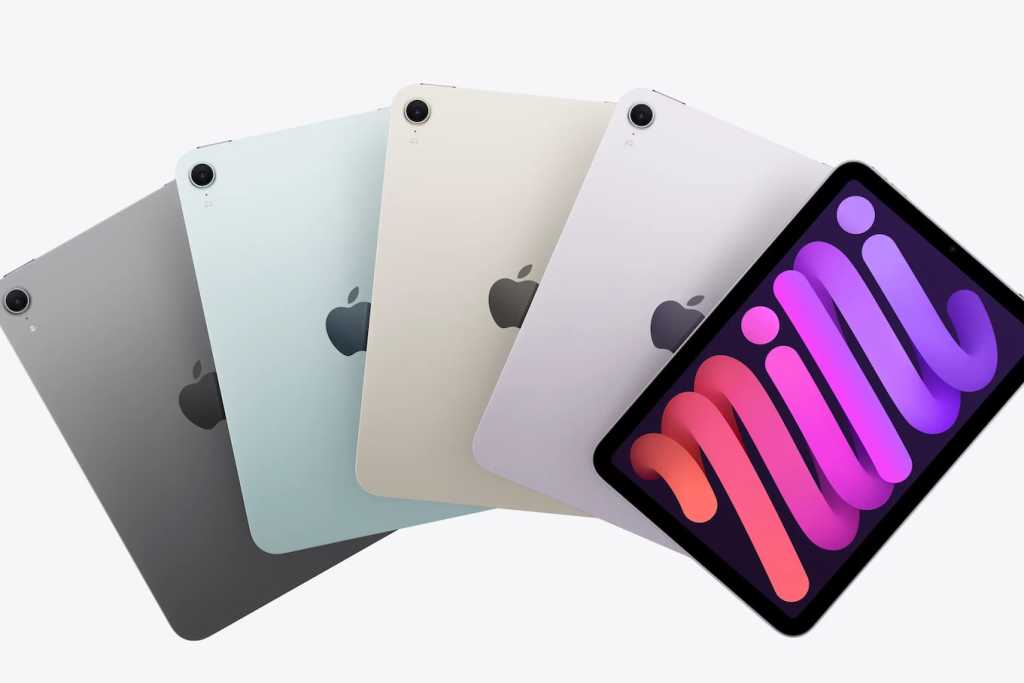We marked October 22nd on our calendars and canceled our plans. We were almost certain that Apple would hold its second fall keynote that day and announce new Macs and iPads. But while we were waiting for an invitation, Cupertino instead sent us a press release with details about the 7th generation iPad mini… and nothing else.
Honestly, we think it’s good news that we’re finally getting a new 8-inch tablet, three years after the last update. And Apple was clear about key innovations in its announcement. The iPad mini 7 is built for Apple Intelligence, which is why it has the A17 Pro processor from last year’s iPhone 15 Pro. (Admittedly, we still have to wait a while for Apple Intelligence to work in the EU, and it may take even longer for Apple’s generated AI to work in German.) It’s not my own personal complaint. But I welcome it.)
Nothing else has changed. The front camera also remains portrait-style, but since the mini is often used as a selfie camera, it’s not an obvious design flaw compared to the larger iPad. The color is also slightly different, a pastel between the trendy iPad 10 and the full-fledged iPad Pro. But color is rarely the reason for a purchase.
What does this mean for the iPad?
The new iPad mini, like previous iPad minis, will definitely find a market. This line has achieved unexpected results in certain professions. For example, they are popular in the aviation industry, where flight crews no longer have to carry heavy manuals around in the cockpit. In the medical field, this compact tablet fits perfectly in a lab coat pocket and provides doctors with all the information they need during their rounds. Thanks to iPad mini, I no longer need to print out my X-rays.
What’s more, people who set their Kindle’s text to maximum size should consider an iPad mini for reading books. Graphic novels in particular benefit greatly from the mini’s crystal-clear, high-contrast screen. The new iPad mini is also highly recommended as a notepad and drawing board for schools, universities, or anyone undergoing professional training.
However, the first serious issue raised by the 7th generation iPad mini relates specifically to the latter target group. How is this different from a standard iPad?
Apple hasn’t updated the vanilla iPad since 2022, but it was a memorable (if divisive) launch. Following the example of the iPad Air and iPad mini, the Lightning connector has been replaced with a USB-C port, the home button has disappeared in favor of a larger screen, and Touch ID is now embedded in the on/off switch. Even more surprising, Apple used this opportunity to experiment with a new camera position on the long side. This seems to have been well-received by customers, despite the introduction of a cumbersome new adapter for the first-generation Apple Pencil. But last year there were no new iPads, which is unusual for a device that Apple has updated every year since its relaunch in 2017.
So what prevented Apple from launching the 11th generation iPad this month along with the new iPad mini? Of course, this is an Apple Intelligence issue.
The chip in the 10th generation iPad was a generation older than the chip in the latest iPad mini, but the iPad itself was a year younger. That’s understandable considering the price difference. But if Apple were to keep that system and launch an iPad 11 with a new mini with a chip one generation older than the A17 Pro (probably the A16), where would that leave Apple intelligence? It wouldn’t be supported. Sho. Apple Intelligence requires 8GB of RAM. That means you need an A17 Pro or better or an M-class chip.
That leaves Apple with only three options for the 11th generation iPad, none of which are appealing. Would you like to install A16 and manage it without Apple Intelligence? Certainly not. Apple needs training data for its new AI platform. This means getting as many users as possible. Would you like to use M1 instead? It may be confusing for customers, but it is possible. Do you want to wait another year for the 11th generation iPad? This is probably the best option, since many of the iPad’s target markets, such as schools and the public sector, don’t need a new model every year.
What about Mac?
There’s a second important question raised by the 7th generation iPad mini. What does this mean for Macs? Especially the MacBook Pro M4 and Mac mini M4 (Pro). When will it be announced?
We were hoping for more Mac and iPad news at the October keynote. It looks like tablets will be featured in the announcement of the new iPad mini, but will Apple go ahead with a Mac-only exhibit? If so, there should have been time at the end of the event to mention the new iPad? The press release is all about It raises questions.
What we do know is that Mac events are definitely needed. The Mac mini M4 (Pro) has been delayed for as long as the iPad mini 7, and the MacBook Pro M4 is already on the Russian gray market. However, we may have to postpone our predictions until October 28th as time has passed for the previously predicted date.
Perhaps, like last year, Apple will announce a new machine on Halloween. We have it on the calendar. Just to be safe, it would be best to cancel the appointment.
This article was originally published in our sister publication Macwelt and was translated and localized from German.


